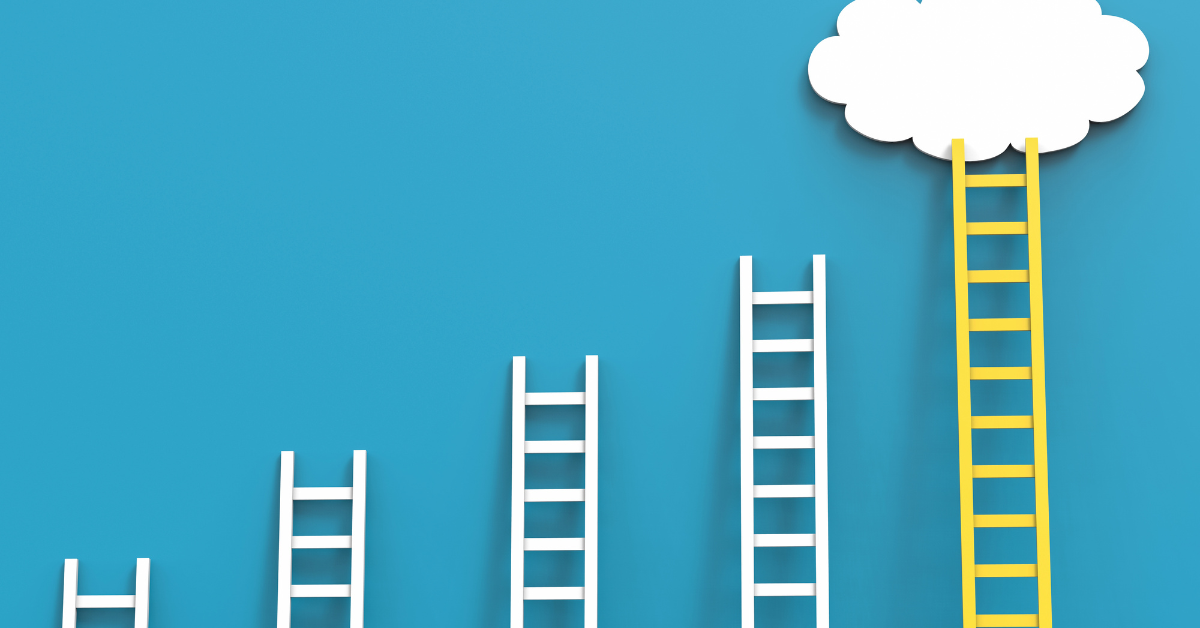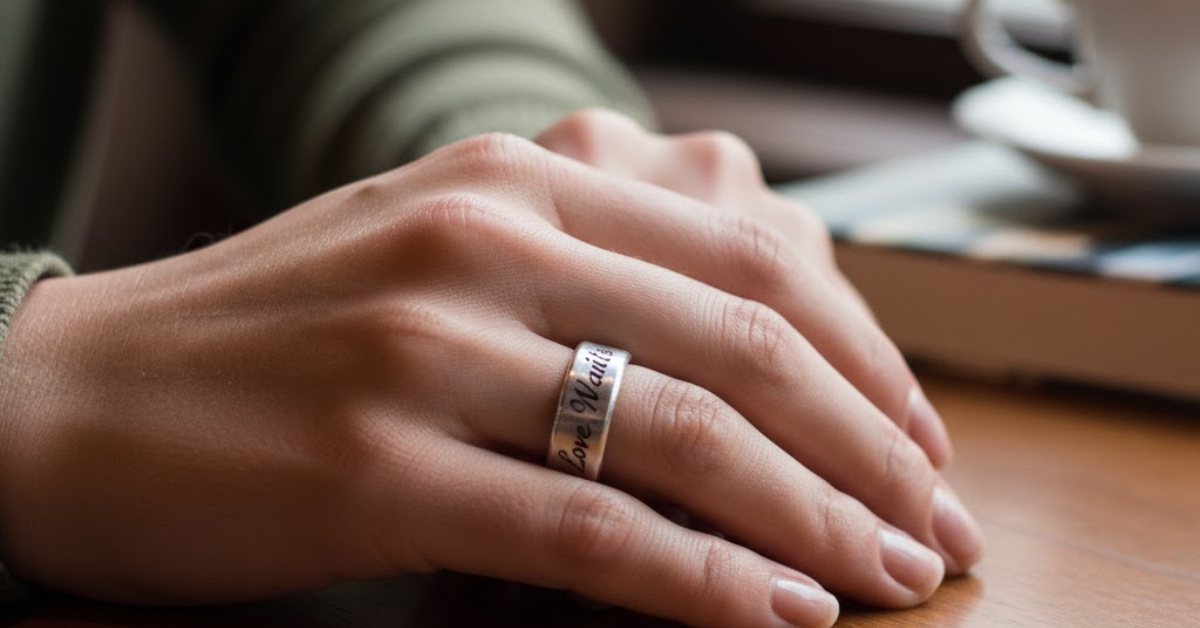198. How Do I Deal with Sexual Thoughts as a Christian?
Written by Carrie Bock on . Posted in OCD, Podcast Episode.
As we continue the Healthy Perspectives on Sex series, Carrie explores what it means for Christians with OCD to face intrusive sexual thoughts with faith and honesty. She opens up a deeper conversation about shame, healing, and renewal in Christ.
Episode Highlights:
- How OCD can distort normal sexual thoughts and create unnecessary guilt.
- The key differences between intrusive thoughts and sinful thoughts.
- Why trying to suppress or “neutralize” thoughts often makes OCD worse.
- How faith and therapy work together to break shame cycles and bring healing.
- What Scripture teaches about renewing your mind and embracing grace.
- Practical steps to find peace and freedom as a Christian living with OCD.
Episode Summary:
Ever feel like no matter how hard you pray, those unwanted thoughts just won’t stop — and you start wondering if that means something’s wrong with your faith? You’re not alone.
In this week’s episode, I’m diving into a topic that’s rarely talked about openly but deeply affects so many believers: how to deal with sexual thoughts as a Christian who struggles with OCD.
If you’ve ever found yourself stuck in fear, shame, or confusion about your own mind, this conversation will bring clarity and compassion.
OCD can twist normal, passing thoughts into spiritual panic, making you question your heart, your purity, and even your salvation.
I’ll walk you through how to tell the difference between intrusive thoughts and sinful thoughts, why trying to pray or “fix” your way out of them only makes the cycle worse, and what it looks like to actually renew your mind through grace and truth.
We’ll talk about how God designed you as a whole person — including your sexuality — and how embracing that truth can help you find peace instead of fear. You’ll learn practical, faith-based tools for responding to OCD in a healthy way, grounding yourself in Scripture, and letting go of the perfectionism that keeps you stuck. Healing is possible, not through striving harder, but through surrendering to the renewing work of the Holy Spirit.
If you’ve been searching for hope, encouragement, and real strategies to help you walk in freedom, this episode is for you.
Tune in to the full episode of Christian Faith and OCD to learn how to break free from shame, quiet the noise of OCD, and experience the peace and confidence God has already promised you.
Transcript
Welcome back to the Healthy Perspectives on Sex Series. We started talking about how to recover from purity culture. That was a couple weeks ago. If you missed that episode, I really want you to go back and listen to it because what I’m about to say really builds on what I started talking about a couple weeks ago.
I want to talk with you about how to deal with sexual thoughts as a Christian who is struggling with OCD.
Hello, and welcome to Christian Faith and OCD with Carrie Bock. I’m a Christ follower, wife and mother, licensed professional counselor who helps Christian struggling with OCD get to a deeper level of healing when I couldn’t find resources for my clients with OCD. God called me to bring this podcast to you with practical tools for developing greater peace.
We’re here to bust through the shame and stigma surrounding struggling with OCD as a Christian, sharing hopeful stories of healing and helping you replace uncertainty with faith. I’m here to help you. Let go of the past and future to walk in the present abundant life God has for you. So let’s dive right into today’s episode.
This is something that can be a very shameful topic. A lot of people don’t wanna talk about it. They don’t wanna tell their therapist everything that they’re experiencing internally, and a lot of times these sexual obsessions will end up with you doing a lot of mental compulsions, and you’ll end up just being stuck in that cycle because we know that the more that you do.
The compulsions, like their ritualistic praying or trying to immediately think of a positive thought, something to like neutralize the thought. If you’re trying to suppress the thought, if you’re trying to quote a certain scripture or a piece of a Christian saying like, well, God just knows my heart. All of those things are compulsion, obviously, that is what we are trying to prevent you from doing and getting out of that loop.
And in order to do that, we really have to talk about this balance between, okay, what is sin and what is an intrusive thought and how do we know the difference? Because people get super wrapped up in this. It’ll just tie you in knots over and over again. Now remember that we’re starting with the foundation that God created you as a sexual being.
And so sexual thoughts are normal. Everyone has them, and they’re not just all bad. If you’re having a sexual thought, it doesn’t immediately mean you need to label it as, oh, this is bad and I shouldn’t be thinking about this. Um, really try to resist that urge. Sex itself is not bad, sinful, or shameful. As a sexual being who’s going to have sexual thoughts, sometimes just allow that to sink in for a moment because I’ve talked with some people who are dealing with OCD and they just have unrealistic expectations for themselves.
Their expectations are that somehow they’re never gonna have another sexual thought again, or they’re never gonna have a lustful thought again. I’m just like, how realistic do you perceive that to be? And they’re like, well, I just would like it to be true, because they find these thoughts so uncomfortable or so distressing to them.
Let’s bring it more into reality and get out of perfectionism. Sexual thoughts are normal. I would say even some sexual intrusive thoughts are normal. Remember that everyone has intrusive thoughts. It’s just that people with OCD get really stuck on theirs and have a hard time moving forward. Way back on episode 1 58, I did a podcast called, is This Thought Sin, where I dove a little bit deeper into, is this thought an intrusive thought or is it a sinful thought?
I wanted to review some of that material. It’s probably been a little while if you have heard it, and if you haven’t heard it, it’ll be new for you. We talked about, is this a thought that you chose? Is this a thought that you wanted to have? Does it actually reflect your desires? Intrusive thoughts are not chosen.
They just pop in unexpectedly. It’s like, I don’t know, the nosy neighbor that comes by very randomly and has a request. They happen really, really fast. And the difference between that and a sinful line of thinking, we can really look at the Bible for this answer. James one 14 tells us each person is tempted when they’re dragged away by their own evil desire and enticed.
What are evil desires? I think you know what those are, but we can talk about some of them in the sexual arena. Taking advantage of women and children, forcing people to do things sexually that they don’t want to do. Having sex only for personal gratification and having no consideration for the other person.
Objectifying people as sex objects who are created in the image of God. Here’s a shocker. Some of these things that I just listed can happen inside of marriage, so don’t think just because you’re having sexual encounters in your marriage, that makes them a hundred percent pure. Just gonna throw that out there for you.
Other evil desires, worship both sex above everything else. Disregarding God’s boundaries for sex. Now, OCD will convince you that those compulsions that I mentioned earlier are the way to control your sexual thoughts. That is not true. The more that you give into the compulsion, the more it just cycles back around and you’ll end up getting more obsessive thoughts.
The more you try to suppress something like a thought process. Okay, so I’m not gonna think about this pink elephant. And it’s essentially the same thing as pushing a beach ball down and trying to hold it under the water. It’s just gonna end up popping back up. And that’s what happens with our thought process.
Some of you are thinking, well, do I just let the thoughts happen? I mean, that’s not okay. These thoughts are just not okay. They’re not good thoughts. I can’t just do nothing about them. God doesn’t want me thinking about these things. I have a few different questions that I would want to ask you. I know that many of our male listeners have either struggled with pornography in the past or they are struggling with pornography.
And I’m really excited because I’m working on getting a guest to come on the podcast to talk about that topic in further detail. We did have an episode far, far back in the archives where we talked about this issue, but it’s definitely time to bring it back around for our Healthy Perspectives on Sex series.
My question for you would be what are you feeding your mind? Are you continuing to feed your mind pornographic images? Are you feeding your mind just in negative stories? Are you feeding your mind? Are you reading about a lot of just really hard experiences that people have been through? Or you’re watching movies that have a lot of sexual content or themes?
Because let’s face it, those things can then come back around. Now that may not be your story because sometimes people can have all these types of intrusions and they’re not doing any of those things. I just wanna throw that out there. If you have a struggle with pornography, definitely get some godly accountability, get some support and some help.
And don’t beat yourself up like through this process. It takes time to recover from something like that. Give yourself some grace where needed. And if you have witnessed or experienced sexual trauma, those images obviously may be really hard to get out of your head. So if you were in that scenario, obviously to try to see if you can find a really qualified, good trauma therapist who can help you work through those things.
Do I just let these thoughts happen? I mean, I have to do something about them. I have to like take them captive and make them obedient to Christ. And we’ve talked about this on a previous episode of what does it mean to take your thoughts captive? Now with OCD, it’s gonna look a little bit different for you because part of taking a captive is not responding to it in the way that you would normally respond to these thoughts.
What I would encourage you to do is to name what is happening, to slow down long enough to say, I am having a sexually intrusive thought. It is coming from OCD, it is not coming from me. My desires, what I really want and know, that can be really hard for people to see and can be hard to separate yourself from your thought process.
Often when I see an OCD is people will take a thought and then they will create their identity around it. Well, these intrusive thoughts, they must mean something about me. Whereas people who don’t have OCD, here’s what we do. We take the thoughts. They go into a colander that I would call the real self, and we filter through which ones align with who we know ourselves to be, what our values are, and that’s what comes out.
If something stays in the colander and doesn’t make it through the holes, we go, eh, that’s not really me. That’s a weird thought. I’m like, now gonna move on from that, and I’m not gonna continue to entertain that because it just. Doesn’t make any sense. I don’t even know why that came to my mind. Getting in touch with who you really are and what you really value, so crucial for OCD treatment, and we do a lot of that in ICBT.
We talk about the feared self that OCD has convinced you of. It’s built that identity around those intrusive thoughts instead of filtering your intrusive thoughts through your identity. Let me tell you, this is just so powerful and really lights me up. It’s actually one of my favorite things about inference based cognitive behavioral therapy.
If you have never heard about that, I have a self-help course on it. Care b.com/training. If you wanna find out more and you can learn all the different components of T on your own time. So when you call it out and say, I am having a sexually intrusive thought from OCD, you can also say to create some separation, reduce shame.
You know what OCD is telling me that I want to sleep with my gym teacher So crazy. OCD. OCD is telling me I am going to cheat on my wife with this woman at the office that I’m not even interested in, and I don’t flirt with her and I’m not entertaining a relationship with her. But OCD has somehow convinced me that I have some type of attraction or connection with her that I’m gonna leave my wife over.
OCD is telling me that I’m going to sexually abuse my child. And OCD is a liar. The reason we know it’s a liar is because it basically hijacks your imagination, creates some evidence for the imagine scenario, then causes phantom sensations, makes it feel like really get stirred up, makes it feel really real.
So that then there’s this massive confusion between the story that OCD made up in your head and what’s actually in front of you. OCD causes you to distrust all of the sense data that’s in front of you. That’s your real self common sense, your five sense data and your true internal emotions, intentions, desires.
Once that’s distrusted, OCDs, like, yeah, that’s not really true, or you can’t trust that. The imagination just gets opened up. It’s unfettered. It’s wild. You can read all about this in resolving OCD volume two, Dr. Frederick Garima. Super wild. And then all of a sudden we’re compiling these facts and evidences that are taken out of context to support the imagination story that’s been created, and then the phantom sensations come along to make it all feel true.
It’s really profound, hard to wrap your mind around, but that’s what he calls the OCD superfecta. It’s the trifecta, then becomes the superfecta. All that sounds super complicated, but the cool part is that once you learn OCDs patterns, like it only has a certain number of plays in its playbook. And once you learn the plays that OCD has in its playbook, you can start to point it out and go like, oh yeah, you do that.
You try to tell me that what happened way back here is relevant to what’s actually going on right now, or what happened to Mary down the street is relevant to my situation. It has nothing to do with my situation. Had to do with Mary’s situation in combating OCD. You wanna take time to fill yourself with positive things.
Just being careful about what you consume and sometimes what we consume can lead to what comes up in OCD. Not always, but just making sure that you’re putting positive things in your life. This is intentional thought process. Paul says in Philippians four, eight. Finally, brothers and sisters, whatever’s true, whatever is noble, whatever is right, whatever is pure, whatever is lovely, whatever is admirable.
If anything is excellent or praiseworthy, think about such things. Some people use this verse to shame themselves about their intrusive sexual thoughts. Kind of like use it in reverse. Well, I’m not thinking about good things and therefore I must be bad. I don’t want you to use it that way. I want you to use it as a way to say, Hey, when I have intentional thought, not intrusive thoughts, not thoughts, that just kind of pop in.
When I take the time for myself to focus on God, to focus on what is good in my life, to focus on. People that love me, that really fills my mind with good things and positive things. OCD can get you super off track in terms of your values because it causes you to believe that whatever this obsessional stuff is that’s going on, it’s like OCD would say.
Hey, this is the most important thing and you need to figure this out, and you gotta do it right now, like it’s super urgent. And not to say that obviously OCD is getting attached to your values and things that you perceive as important, like sexual purity. However, we also know that OCD can take you away from your values.
Because if you’re so focused on sexual purity that you’re maybe not interacting or like not able to change your baby’s diaper or not able to be around certain people because you’re afraid of sinning or afraid of lusting, then that’s taking you away from your values. Romans 12, two tells us to not be conformed to the pattern of the world, but to be transformed by the renewing of your mind.
It’s God and the Holy Spirit that renews our mind. We have the mind of Christ. Another verse tells us. One Corinthians two 16 says that we have the mind of Christ, and regardless of what you’re going through, if you know that you are a Christian, this should be incredibly comforting to you. God has put His spirit in you.
You have. The mind of Christ. I know that if you’re listening to this podcast episode, you are most likely seeking God’s will and to do what he has called you and asked you to do. God knows and understands the struggle that you’re going through, even more than you actually do. Allow that to comfort you as you’re going through this process.
Let’s get into how do we deal with sexual sin, because we know there are going to be times, like I talked about earlier. We’re going to mess this up where we are going to lest where we’re going to make mistakes, we’re going to step outside of bounds of what God wants for us, and I want to talk about this renewal and transformation and sanctification process that happens after we’re saved.
So many times when we talk about salvation and we’re like, isn’t it awesome? God has saved us, and we’re like, it’s just this instantaneous great thing. But we fail to talk about that becoming like Christ, what we call sanctification is a process. It’s not an overnight change that happens. It’s we continue to submit to God and his work in our life.
And we continue to be molded and be open and allowing God to work in our life. That is our role, but it is Dad’s role to do the work. We’re not over here like needing to white knuckle and force and make something happen. Oh, I have to work super, super hard to make myself like Christ. No, every day you have to be abiding in Christ.
Open yourself up to that transformation. That is your role as a Christian. I think Colossians really brings this out really well. If you look at Colossians chapter three, I’m not gonna read all of it to you, but it talks about how in verse five, consider the members of your earthly body as dead to immorality.
Impurity passion, evil desire, and greed, which amounts to idolatry. There’s that evil desire coming back in Word it said you in them. You also once walked for seven when you were living in them, but now it’s talking about putting aside these various things, anger, wrath, mallet, slander, and abusive speech.
And it goes on to say, okay, once you’ve put these things aside, then it talks about putting. On certain characteristics, so put on a heart of compassion, kindness, humility, gentleness, and patience. There’s this process that we talked about before in terms of mind renewal, where. Certain things you are watching, the content of what you’re putting in, and then you’re also intentionally putting in healthy positive content as well.
I encourage you to really go through and meditate and read that Colossians three chapter some more because I think that that will help you quite a bit and this whole process is working through these sexual thoughts. Is trusting and surrendering to the Holy Spirit’s work in you. We have to be able to trust that we are forgiven when we sin.
One John one, nine. If we confess our sins, he is faithful and just and will forgive us our sins and purify us from all unrighteousness. Psalm 51 10 created me a pure heart, oh God, and renew a steadfast spirit in me. Being able to utilize some of these scriptures and remembering that even the in the times where you mess up, that you can come back to God, that you can seek him and seek forgiveness.
When you think about Jesus’s response to the woman caught in adultery, he had every right to condemn her. He was the only one that really had the right to do that. The other people, they had sin in their own life. UNT and Jesus was perfect, and yet he said, I don’t condemn you. Go and sin no more. That’s in John eight, a really incredible picture of the compassion of Christ and the availability of grace and forgiveness for us.
There’s a balance here of speaking truth that hey, this sin is not okay. And also being able to receive grace when it’s needed. If you are dealing with sexual intrusive thoughts, know that you are not alone. Know that there is help and treatment out there for OCD and recovery is incredibly possible for you.
Until next time, may you be comforted by God’s great love for you. Christian faith in OCD is a production of By the Well Counseling. This podcast is for informational purposes only, and should not be a substitute for seeking mental health treatment in your area.








